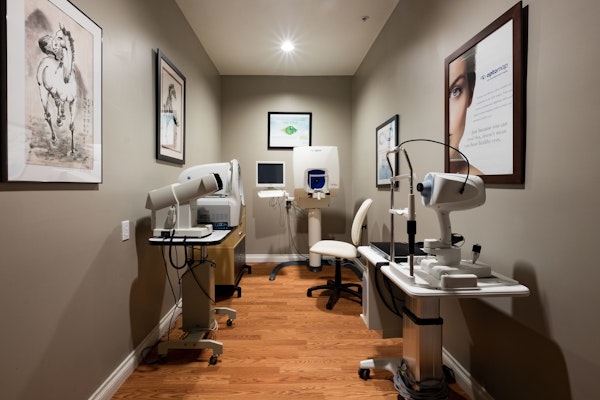Why Do We Blink?
 Professional eyecare should be part of every person’s health routine. Depending on age and other risk factors, optometrists at GW Eye Associates recommended that our La Jolla, Carmel Valley, and San Diego, CA, patients schedule routine eye exams at least once every one to two years.
Professional eyecare should be part of every person’s health routine. Depending on age and other risk factors, optometrists at GW Eye Associates recommended that our La Jolla, Carmel Valley, and San Diego, CA, patients schedule routine eye exams at least once every one to two years.
Comprehensive eye exams are essential to the health and function of the eyes, but the body itself does a lot to promote eye health. For instance, although people don’t think about it, they blink on a regular basis. For those who wonder, “why do we blink?” we’re here to talk about the benefits of this subconscious habit.
What Is the Purpose of Blinking?
Blinking is essential to eye health. Blinking is the body’s natural way to cleanse and moisturize the eye. When the eye blinks, lubricating and salty secretions from the tear glands are wiped across the surface of the eyeball. These secretions contain oils and mucus that hydrate the surface of the eye while simultaneously washing away dust particles and other irritants.
Blinking also provides the eyes with short and frequent breaks. Although longer breaks are needed to protect the eyes from harsh sunlight or the glare of a computer or phone screen, blinking does provide a brief relief from potentially damaging stimulants.
How Often Do People Blink?
When a person blinks, their eyes are closed for approximately one tenth of a second. This quick action may not seem sufficient to moisturize the eye and wash away particles. However, a single blink can be quite effective, and because people blink so frequently, it is a highly beneficial habit.
On average, a person blinks between 10 and 15 times a minute, which is more than enough to do the job. In contrast, babies only blink about once a minute. There are many possible reasons that adults blink at a greater frequency than children. Various research shows that most of these reasons are psychological. People blink more often when they are tired, and less frequently when they are processing information or participating in an activity that requires a great deal of attention.
Environment also has an impact on how often someone blinks. Since blinking is primarily meant to cleanse and lubricate, blinking occurs more frequently in dry, dusty, or smokey conditions. This is the body’s protective response to an environment that could be damaging to the eyes.
What if I Still Suffer from Dry Eyes?
Blinking helps the eyes stay moist and clean, but it is not always enough to prevent dry eyes. Dry eye can occur if the body doesn't produce enough tears or if the tears that are produced are of poor quality. Chronic dry eye can be extremely uncomfortable, and may result in itching, burning, and/or red eyes. People who suffer from dry eye can talk to our optometrists about treatment, which may include the use of artificial tears or prescription eye drops.
Contact GW Eye Associates
At GW Eye Associates, our optometrists offer a comprehensive range of eye care services, including routine eye exams and treatment for common eye diseases. To learn more about these services and how they can be beneficial to you, send us a message online, or call our office at (858) 454-4699.







